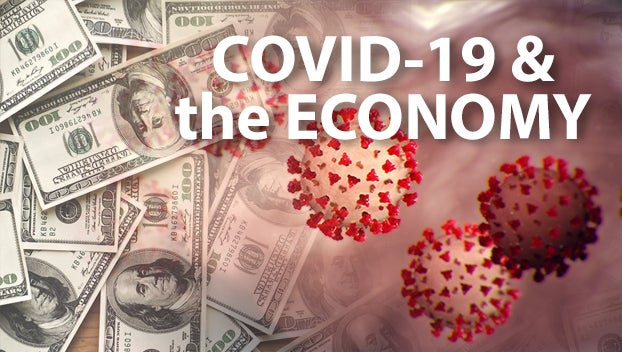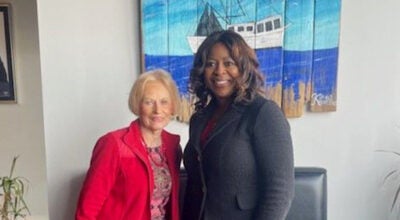Mississippi pastor, barber experiences spiritual, financial impact of pandemic
Published 6:13 am Sunday, December 20, 2020
Since first opening its doors nearly 17 years ago, Robert Jackson’s barbershop, Bo-Lee’s Styles & Cuts, has never been quieter.
Before COVID-19, Jackson, known to most as Bobby or Bo-Lee, would see people come in the shop just to hang out and crack jokes. Now, they can’t come in more than one or two at a time.
“This was originally a place of camaraderie, where people can come and express their feelings and emotions and laugh and talk,” Jackson said. “It totally destroyed that fellowship that most barbershops and salons experience.”
When the pandemic began, the 46-year-old entrepreneur and pastor of The Children’s Church Outreach Ministries changed how he handled business. It forced him to close for approximately three months, and it caused his family to have to “do some things that were not the norm.” Even when he started seeing customers again, the added cost of buying the supplies necessary to open safely made it expensive to be a barber.
“We can hardly find Clorox wipes, and we just started getting around to getting hand sanitizer,” he said. “We have to convert to disposable capes and things of that nature, and it’s hard to find a can of Lysol anywhere. These are all some of the requirements of being a barber, which is very expensive and almost impossible to fulfill all the criteria.”
For a few of his customers, the pandemic forced him to cut outside or in their homes. Other regulars stopped coming altogether. Losing business had a direct impact on his income.
“For several months, I had to draw unemployment, and that affected my household,” Jackson said.
Jackson’s business was far from the only one forced to close its doors because of COVID-19. The immediate aftermath of the pandemic’s arrival in the spring, there were shutdowns across the region. In April, unemployment rates hit a record high for Northeast Mississippi, averaging 17.8% across the region. It was among higher rates in the region, above the statewide unemployment rate of 16.3% in April, according to the Mississippi Department of Employment Security (MDES). That same month, initial unemployment insurance claims rose to 157,712.
While those numbers have lowered since, the economic impact remains. Mississippi reported an unemployment rate of 7.4%, or 95,200 unemployed people, and 14,844 initial unemployment insurance claims and 208,579 continued claims as of October.
Jackson knows he wasn’t alone in being affected by the pandemic. Several of his customers lost their jobs, and he said there were many people who lost their homes and cars because they were used to living a certain way. Some of his church members have had loved ones contract COVID-19. They serve in the fire department, work in nursing homes, or are teachers, and their lives have been challenging because they must interact with society despite the virus.
As a pastor, the pandemic halted everyone coming together, Jackson said. Church members were accustomed to hugging, shaking hands and having fellowship dinners. They haven’t experienced that in months, which is something his congregation has missed.
“That is the second most important part of the church itself, is the fellowship,” Jackson said. “It totally destroyed our fellowship in a physical sense, and we have now, for the last four or five months, been having our services on Zoom.”
His own family has not been immune to COVID-19’s impact. He has a wife and three children in school. His oldest son, also named Robert, attends college in Massachusetts. For his youngest two, the time when they were learning at home had different effects on each. While his daughter, 16-year-old M’Kya, is a straight-A student and adjusted quickly to her new learning environment, Jackson’s youngest, 12-year-old Isaiah, does much better with one-on-one instruction. When the time came to discuss returning to in-person classes, the two returned because virtual learning had fatigued them.
The pandemic also had a financial impact on Jackson’s wife, Pat, who has worked at Booneville Head Start for over 20 years. There was a period in which she couldn’t work, and Jackson said the enhanced unemployment benefits through the CARES Act helped tremendously. While she’s back to teaching, they’ve moved to a virtual learning program, but the family still worries about if her job will close.
As an entrepreneur – Jackson also plays saxophone and finishes concrete while also being a barber and pastor – Jackson used his skills to keep his family afloat.
“I’m a hustler, so I did more construction during that time, and odds and ends, whatever was needed to take care of myself and my family,” Jackson said.
Learning how to pivot has been a constant theme throughout Jackson’s life. He’s lived and worked in Booneville on and off since he was 17. He was born and raised in Joilet, Illinois, but his family migrated to Booneville in 1991 with the purpose of getting him away from “gangs and warfare” to start a new life. He was a senior in high school when he arrived in Mississippi, but didn’t graduate after being kicked out because of his attitude.
Jackson spent the next few years bumping around, traveling from place to place, going from job to job. He eventually landed in Massachusetts when his oldest son’s mother moved there. While there, he attended the Rob Roy Academy in Worcester, Massachusetts, to become a licensed barber. He completed the program in 2000.
In 2003, Jackson accepted his call to preach. He married his wife in 2004, the same year their daughter M’Kya was born and Bo-Lee’s Styles & Cuts opened.
One bright spot during the pandemic was getting a government loan to help him remodel his barbershop after nearly 17 years. He applied for a small business administration (SBA) loan, but there were several other grants he applied for that didn’t come through.
“Even after applying and waiting, it was always, the times I sent, there was always a thing where the money ran out, and I didn’t benefit from it as some other people may have,” Jackson said.
This forced him to make other choices to ensure he had enough income to pay his mortgage and the rest of his bills. He leaned on prayer, swallowed his pride, and did what he had to do to support his family.
“There were some jobs, some things that I took on, to ensure that my family was still comfortable in the way that they live,” Jackson said.
Over the past three months, Jackson has continued remodeling his barbershop. With his church next door, Jackson shifted to cutting hair there. While back in business, it feels different from before.
Jackson realizes from experience that some customers are still fearful about being in businesses. Before March, he was used to seeing 30 to 40 customers by appointment only in a week’s time. That got down to seeing 20 people a week during the pandemic. Thankfully, business is picking up.
While Jackson ended up having to see a couple of customers at home, the activity added risk and was challenging. It became tiresome to go from different locations, but Jackson did so because his customers needed haircuts. For the customers he sees at the shop, he requires temperature checks and masks to walk through the door. He’s seen some customers who have been affected by COVID-19, whether contracting it themselves or knowing someone who has. He’s been fortunate so far not to contract it himself, but acknowledges there’s an inherent risk in what he does for a living.
“Every day that I come to work, I put my family in harm’s way, but we pray and we trust God,” Jackson said.
As the church becomes more distant physically, Jackson is reminding his congregation how God “doesn’t reside in a building made by hands.” Jackson believes that in some ways, the change has caused Christians to establish a more personal relationship with Christ, but Jackson also worries that fear may cause people to reevaluate public gatherings like those of a traditional church service.
“In looking at our society today, I don’t know if that church will ever be again. We pray that it does,” Jackson said.
Looking ahead, Jackson wants to enroll in computer classes to get more technical knowledge on how to continue online church. He hopes to teach his members how to deal with the various changes the world faces because of the pandemic, whether socially or economically, and how to prepare for unexpected turns in life.
“I would tell them to keep their head up and don’t lose hope,” Jackson said. “Man has sustained many, many changes in life over the years, the centuries and decades, and there’s nothing that I’ve seen yet that we won’t overcome.”






